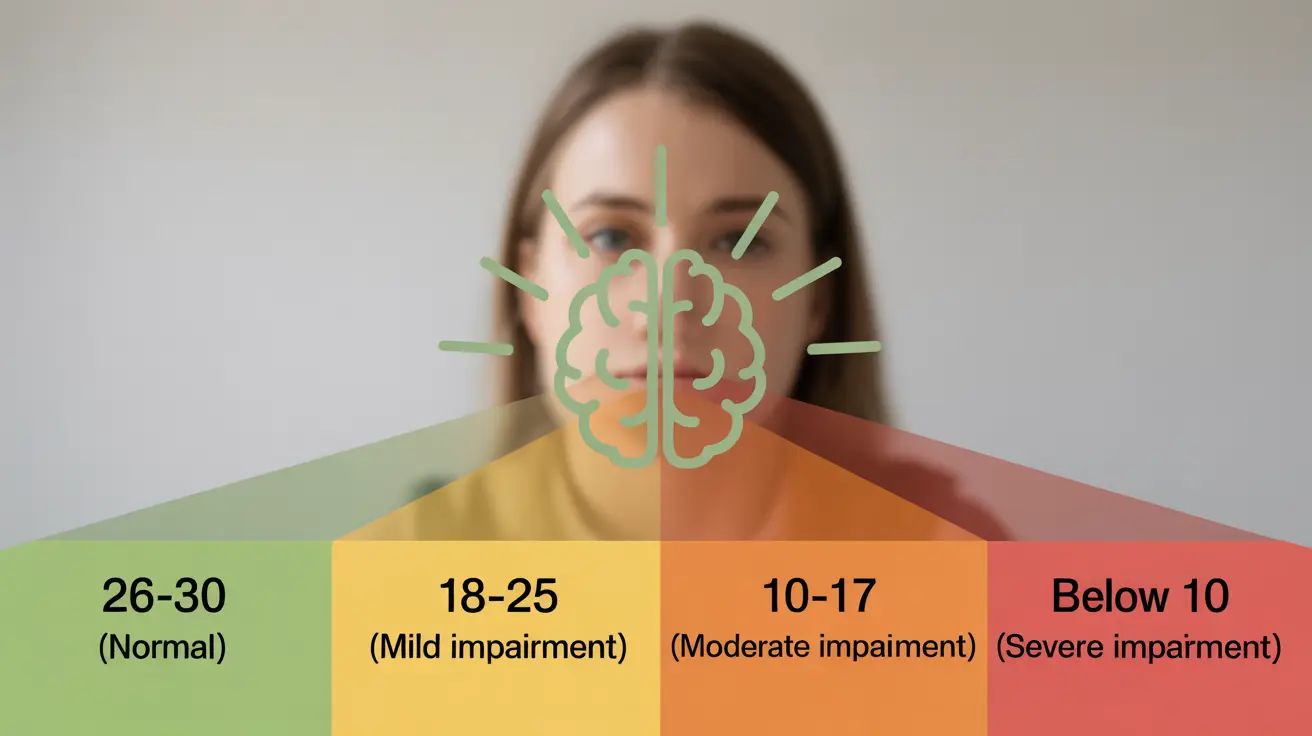The Montreal Cognitive Assessment (MoCA) score interpretation is a crucial aspect of evaluating cognitive health and detecting potential impairments early. As a widely used screening tool, understanding what your MoCA score means can provide valuable insights into your cognitive function and help healthcare providers make informed decisions about further evaluation or treatment.
Whether you're preparing for a cognitive assessment or have recently received your results, this comprehensive guide will help you understand how MoCA scores are interpreted and what they mean for your cognitive health.
The Basics of MoCA Score Interpretation
The MoCA test evaluates various cognitive domains, including memory, attention, language, and executive function. The test is scored out of 30 points, with higher scores indicating better cognitive performance.
Generally, the score ranges are interpreted as follows:
- 26-30: Normal cognitive function
- 18-25: Mild cognitive impairment
- 10-17: Moderate cognitive impairment
- Less than 10: Severe cognitive impairment
Understanding Score Adjustments and Factors
Education Level Considerations
Education level plays a significant role in MoCA score interpretation. The test administrators typically add one point to the final score for individuals with 12 years or fewer of formal education. This adjustment helps account for educational differences and ensures more accurate assessment results.
Age-Related Factors
Age can influence MoCA scores, and normal ranges may vary slightly for different age groups. Healthcare providers take this into account when interpreting results, especially for older adults.
Comparing MoCA to Other Cognitive Tests
The MoCA test has several advantages over other cognitive screening tools, such as the Mini-Mental State Examination (MMSE). It is generally more sensitive to mild cognitive impairment and provides a more comprehensive assessment of executive function and attention.
Key Differences from MMSE
Some notable distinctions include:
- More challenging memory tasks
- Enhanced visuospatial assessment
- Greater emphasis on executive function
- Better sensitivity to early cognitive changes
Clinical Implications of Your Score
A MoCA score should always be interpreted within the context of your overall health assessment. Healthcare providers use these scores alongside other clinical information to:
- Detect early signs of cognitive decline
- Monitor progression of cognitive conditions
- Evaluate treatment effectiveness
- Guide further diagnostic testing when needed
Frequently Asked Questions
What does a Montreal Cognitive Assessment (MoCA) score mean for my cognitive health?
A MoCA score provides an objective measure of your cognitive function across multiple domains. A score of 26 or above typically indicates normal cognitive function, while lower scores may suggest varying degrees of cognitive impairment that warrant further evaluation.
How is the MoCA score interpreted to differentiate between normal cognition, mild cognitive impairment, and dementia?
Healthcare providers use specific score ranges: 26-30 for normal cognition, 18-25 for mild cognitive impairment, and scores below 18 often indicating more severe cognitive issues. However, these interpretations are always considered alongside other clinical findings and symptoms.
Can my education level affect my MoCA test score interpretation?
Yes, education level is a significant factor in MoCA score interpretation. The test protocol typically adds one point to the final score for individuals with 12 years or fewer of formal education to account for educational differences.
What MoCA score ranges indicate mild cognitive impairment versus more severe cognitive problems?
Scores between 18-25 typically suggest mild cognitive impairment, while scores of 10-17 indicate moderate impairment. Scores below 10 generally suggest severe cognitive problems. However, these ranges are guidelines and must be interpreted within the context of individual circumstances.
How reliable is the MoCA test compared to other cognitive screening tools like the MMSE?
The MoCA test is generally considered more sensitive than the MMSE, particularly for detecting mild cognitive impairment. It provides a more comprehensive assessment of executive function and is better at identifying subtle cognitive changes in higher-functioning individuals.




